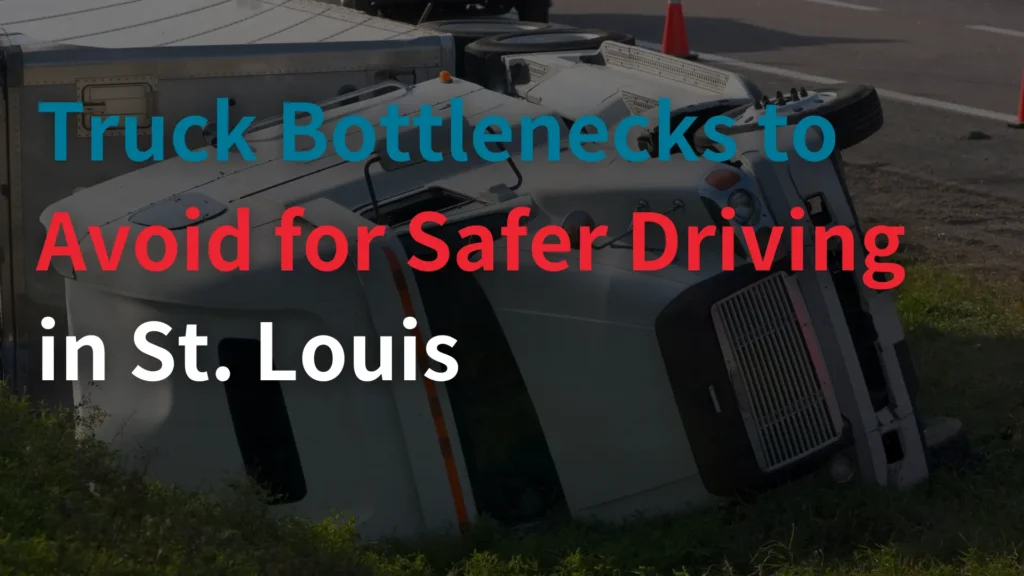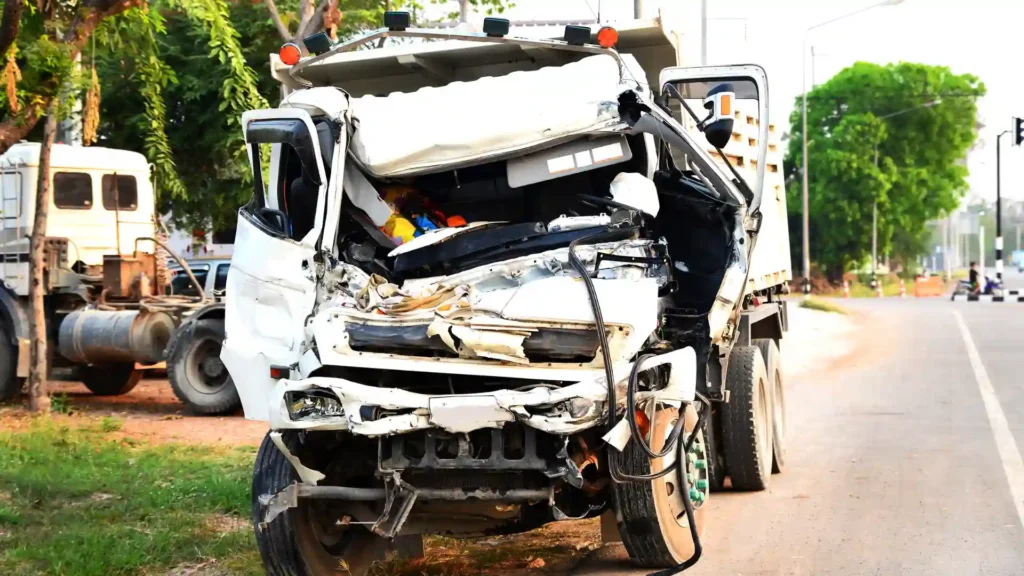
St. Louis drivers have a better road situation than they used to, but the city still ranks among the worst truck bottlenecks in the United States. According to a 2024 traffic report by the American Trucking Research Institute, St. Louis is the 49th-worst truck bottleneck in the country.
To the surprise of no one who regularly travels through St. Louis via Interstate 64, I-55, or I-44, their junction is among the worst interchanges in the U.S. Traffic slows and stops, affecting pedestrians, vehicles, commercial trucks, and even emergency vehicles that are trying to help.
Any sudden-stop traffic and stop-and-go traffic creates hazardous travel for all, causing accidents that mangle cars and trucks and hurt drivers and passengers.
One of the unfortunate consequences of two realities in America – the culture’s ongoing fascination with cars and trucks and the country’s inability to build and maintain enough automobile infrastructure – is unrelenting heavy traffic.
St. Louis is no exception.
The good news: For St. Louis, 49th is an improvement. As recently as 2020, the city’s traffic ranked No. 22. The most frustrating traffic area in St. Louis once was on the Poplar Street bridge, which crosses the Mississippi River near the St. Louis Arch and Busch Stadium downtown. Stop-and-go traffic during rush hours and lunch hours were commonplace.
But MDOT added lanes to the bridge to give drivers more options. Also, many downtown office workers began working remotely during the COVID-19 pandemic, and an undocumented number remain work-from-home employees. They no longer jockey for road position.
The city also opened the Stan Musial Bridge in 2014, further decreasing traffic saturation for downtown commutes.
Both bridges and the three interstates still experience bottlenecks, but now those usually occur because of accidents. Many drives through the St. Louis interchange have taught Nelson and others how to choose the best lane of travel depending on the time of day or night and to pay attention to reckless drivers.
According to ATRI, truck bottlenecks costs nationwide in 2021 topped $94.6 billion. Bottlenecks caused 1.27 billion hours of delay in 2021. That amounts to 460,000 truckers sitting in their cabs with the trucks idling for a year. Such delays wasted nearly 6.8 billion gallons of fuel.
Some causes of truck bottlenecks are easy to understand. Accidents and road construction, both of which lead to abrupt lane and road closures, are reasons traffic backs up. The more traffic there is, the more congestion there is and the bigger the bottleneck that stopped vehicles cause.
But other circumstances also create bottlenecks. Road debris — shredded remains of tires, accidentally ejected items from a truck bed, dead animals — is another cause. Two other causes include rubbernecking and a phenomenon known as phantom traffic jams.
Rubbernecking occurs when drivers take their eyes off the road and slow down to look at something else. Two examples are an accident scene on the other side of the road or a special scene of nature — a beautiful sunset, a magnificent mountain, or a picturesque body of water.
Rubbernecking is similar to phantom traffic jams, which happen when a driver brakes hard because of slower traffic ahead, causing countless drivers behind also to brake. The combination of all those slowing cars ultimately leads to a stoppage. If you were ever in stopped traffic for a few minutes and then got going again and never discovered a reason for your earlier stoppage, chances are you were in a phantom traffic jam.
Then there’s road design. In St. Louis, I-44 connects with I-64 amid a maze of merging interstates and overpasses. Traffic can range from 50 mph to 70 mph in those areas, which can impact bottlenecks, too, with the slowing, stopping, starting, and attempting to get back to regular speed. Also, existing lane closures and future construction closures in St. Louis will add to an already long list of delays.
ATRI and the Federal Highway Administration conducted consistent traffic studies of St. Louis and other traffic hotspots around the country. Since at least 2009, GPS systems tracked speeds and other data when the Poplar Street Bridge ranked No. 6 among the nation’s worst bottlenecks. Thereafter, traffic engineers worked to alleviate bottleneck congestion in St. Louis with increased bridge rehabilitation and new road construction projects designed to improve traffic flow. Statistics suggest they succeeded.
More recent studies have shown how traffic flow in St. Louis has improved. But engineers can’t control or redesign all the elements that contribute to truck bottlenecks, including rush-hour traffic.
 Not surprisingly, the most dangerous times to drive through St. Louis are during the morning rush hour, between 6 and 8 a.m., according to the Missouri Department of Transportation. The second most dangerous time is right after work — between 5 and 6 p.m. Although there are fewer accidents during the late-afternoon rush, officials caution drivers to be more wary during that time. That’s because drivers sometimes consume alcohol after work and before they get behind the wheel.
Not surprisingly, the most dangerous times to drive through St. Louis are during the morning rush hour, between 6 and 8 a.m., according to the Missouri Department of Transportation. The second most dangerous time is right after work — between 5 and 6 p.m. Although there are fewer accidents during the late-afternoon rush, officials caution drivers to be more wary during that time. That’s because drivers sometimes consume alcohol after work and before they get behind the wheel.
National crash data shows that one out of every three car or truck crashes that occur between 3 p.m. and 9 p.m. involves at least one fatality.
Were you injured in a crash with a semi-truck? Did someone else cause the accident? You could be entitled to compensation for your accident-related injuries and losses. The St. Louis truck accident lawyers of Goldblatt + Singer can help.
When you call our office, you’ll get a free consultation from one of our attorneys. You can tell us about the accident and your injuries, and we’ll advise you of your options for pursuing the compensation you deserve. We have handled many notable cases similar to yours. If you’re worried that you can’t afford a lawyer, you needn’t be. Goldblatt + Singer works on a contingency fee basis. That means you pay nothing upfront and no lawyers’ fees until we secure compensation for you. If you get no money, you’ll owe us nothing.
Don’t try to handle your truck accident claim alone. Call Goldblatt + Singer at (314) 231-4100 or contact us online for help today.
What to Do After a Semi Truck Accident in St. Louis
What Should You Do If You Have a Tire Blowout Accident with a Truck?